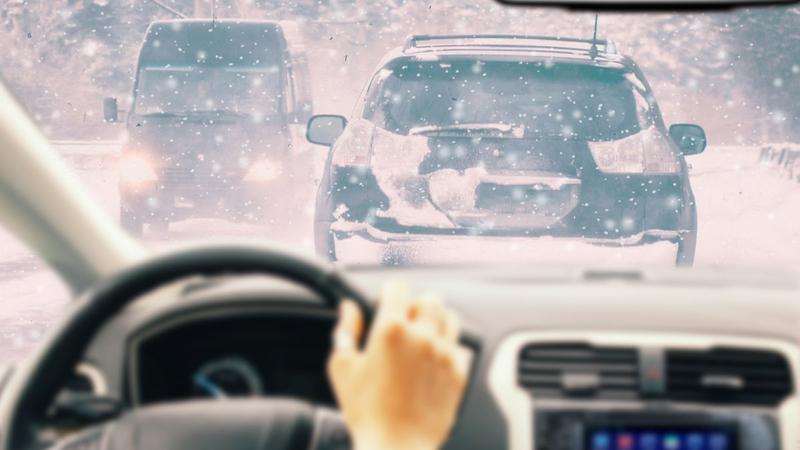There is no question that harsh winter weather can wreak havoc on your vehicle. From snow, slush, and salt damage to treacherous driving conditions that can increase your chance of a collision, drivers need to be extra cautious during this snowy season.
While you can't control the weather, you do have power over certain practices that put you at greater risk for theft or damage and can be easily avoided. Here are a few winter driving habits that can be costly.
Leaving your running car unattended.
On frosty winter mornings, many people start their car and go back into the house, leaving the vehicle running in the driveway to warm up the engine and de-frost the windows. Or, they don't turn off their car when they run into a convenience store or ATM "just for a minute".
But an unattended car is an open invitation to thieves. If you have to leave your car for any period of time, turn off the ignition and lock the doors. It may seem inconvenient, but it's not nearly as much trouble - or as embarrassing - as being stranded or having to report the vehicle as stolen.
Driving with all-season tires instead of snow tires.
Leaving your all-season tires on your vehicle may not be the safest option during the winter months. Studies have shown that winter tires are more effective at preventing accidents during the cold winter months than all-season tires. They have deeper treads to cut through snow and help you stop, and they are made of rubber compounds that don't lose their grip when the temperature dips below 7Â ° Celsius as with all-season tires. Besides safety another benefit to switching is some insurance companies will even offer you a discount if you install four winter tires on your vehicle - check with your insurance professional.
Forgetting to clear the snow from your windows and roof.
Before you head out on the road, it is important to clear the snow from all windows on your vehicle - front, back and sides - to ensure you have an unobstructed view. Be sure to clear off the roof of your car as well, as chunks of snow and ice can blow off your car as you drive, causing a hazard for other vehicles and yourself which could potentially lead to an accident.
Keeping your car unlocked to avoid freezing.
Being unable to open your car doors because the locks have frozen is not an experience you want to have, especially standing outside in sub-zero winter temperatures. You may be tempted to leave your car unlocked so that you can still access it, but then so can would-be thieves.
Always lock your car as a precaution, even if you're away for only a few minutes. Invest in a purse or pocket size bottle of lock de-icer for those really frigid days. It only costs a dollar or two, a small investment that could save you from the big costs and headaches of a break-in or theft.
Leaving valuables in plain sight.
When you leave valuables in your car where they can be seen, anything from expensive electronics like a satellite radio, purchases from your shopping trip or spare change for the drive thru, your car becomes a target for thieves. Even if your car isn't stolen, a thief could smash your window and take your belongings.
Keep these items out of sight by storing them in your trunk, glove box or centre console. If you don't have a trunk, invest in a hatchback tonneau cover or other device that will conceal the storage area.
Some items left in your car such as sports equipment, a laptop computer or shopping purchases are not covered under your auto insurance policy; they are covered under your home insurance policy. With a car break-in you may have to make two separate claims, and that means paying two deductibles.
In the unfortunate case of an accident or theft, do you know if you're covered? Talk to your insurance professional about your policy, or refer to the article What does your insurance policy cover on InsuranceHotline.com for more information on what your insurance policy may cover.
